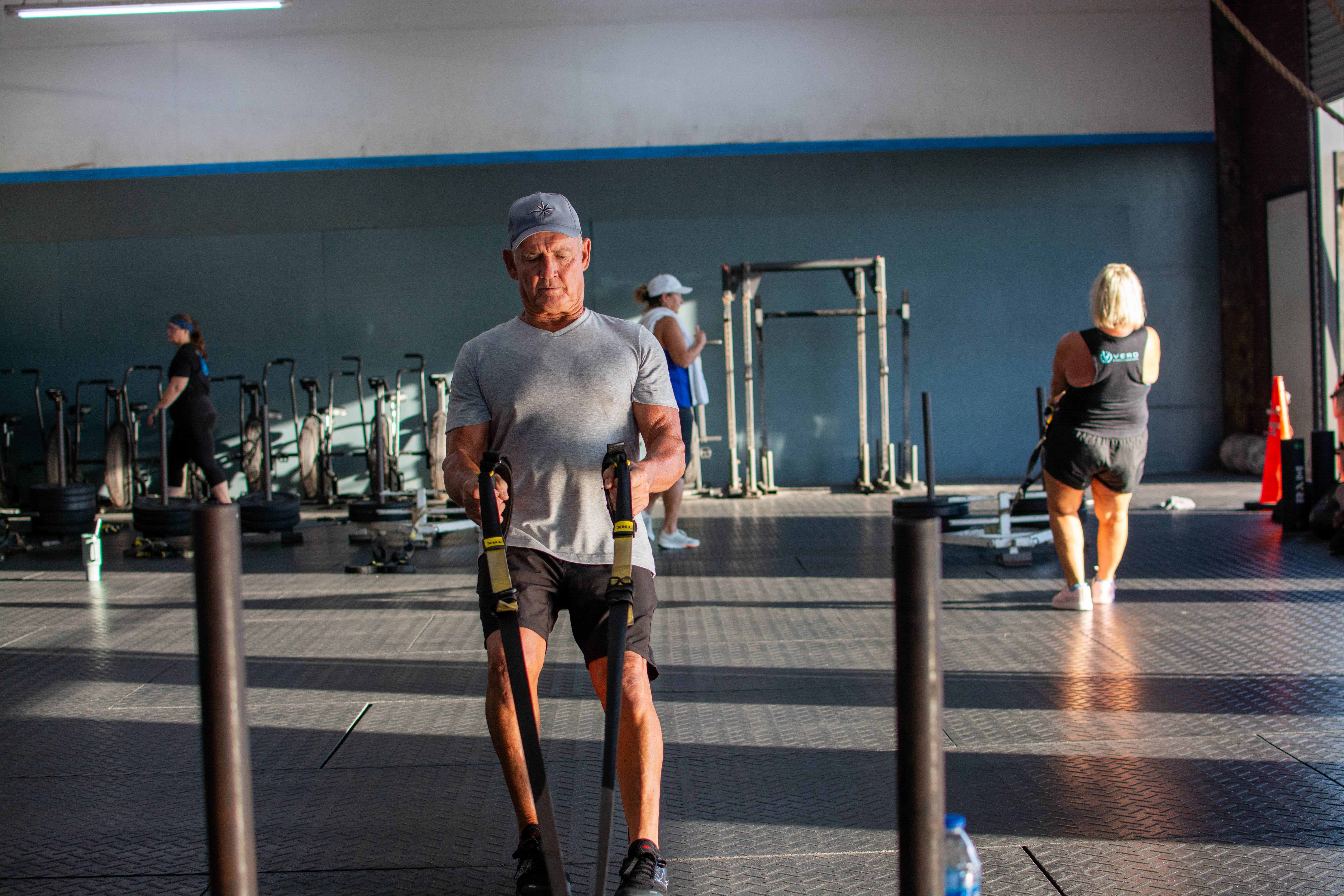Are You Confusing a Hard Workout with a Smart One?


This topic is something I’ve written about many times and it's a conversation we have regularly. Several times a month, someone will reach out to ask if we have daily CrossFit classes. When I explain our program and philosophy and invite them in for an assessment, I often get ghosted because there are people who think they should "throw down" every single day. Luckily, there are times when the person is willing to give us a try. It may take some time to change perceptions, but when they do stay open-minded, a shift happens. They appreciate the fact that their bodies feel less beat up and they are actually getting stronger. Here, I am going to dig into why, just because you’re sweaty or sore, doesn’t mean you had a good workout…
There’s a common belief that if you’re gasping for air, drenched in sweat, and sore for days, then you had a great workout. The thought is that soreness equals success and exhaustion equals effectiveness.
Sure, we all get sore sometimes—and some training days are tougher than others. But here’s the truth: feeling crushed shouldn’t be the goal. And learning to suffer doesn’t mean you’re making progress.
When you're constantly sore or wiped out from a workout, it doesn’t just affect that day—it impacts your entire week. If Monday’s session leaves you unable to get off the toilet without assistance, how well are you training on Wednesday or even Friday? Overtraining—or under-recovering—chips away at your energy, movement quality, nervous system, and motivation. It turns training into something you survive, rather than something that actually moves you forward.
And, in our experience, it's often the successful, type-A personalities that like to beat themselves up, claiming it's "stress relief." In reality, they are just adding more stress, and a different approach is the better one.
Smart training isn’t about going all out every session—it’s about hitting the sweet spot. The right volume. The right load. The right movements. The right pacing. Good programming balances intensity with intention. It’s thoughtful in terms of exercise selection, movement patterns, and rep schemes. One workout is a step in an overall plan, not random movement.
Because here’s another truth: anyone can throw a bunch of movements on a whiteboard and call it a workout. That’s not programming—that’s novelty. And while it might feel fun or tough in the moment, if it’s your regular M.O., you’re leaving real progress on the table.
What Good Training Looks Like
What Not-So-Great Training Looks Like
At Vero Strength, one of our training philosophies is: Train all week. Test on Saturday.
Each workout is part of an overall plan. Monday through Friday, we focus on strength, movement quality, pacing, and consistency. On Saturday, we go hard—we test what we’ve built. Our members love it, and so do we. But, truth be told, we see technique go out the window on Saturdays because when you go fast, there's a level of "slop." Speed is prioritized over mechanics and many aren't able to maintain composure under high heart rates. Imagine if we programmed that level of intensity multiple times a week - we wouldn’t see the results we see now: people moving better, getting stronger, and training consistently.
You wouldn’t rag out a sports car every day, would you?
So…
Don’t confuse soreness with success.
Don’t chase tired—chase better.
The best workouts aren’t always the hardest. They’re the ones that actually move you forward.